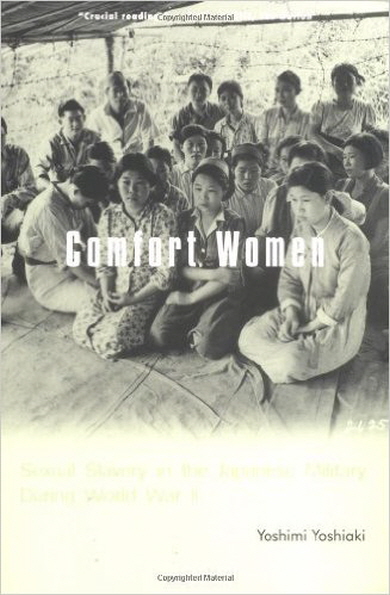
On Dec. 28, 2015, the Korean and Japanese governments held an agreement that rendered the “comfort women” issue as “finally and irreversibly” finished. However, current movements in both Korea and Japan show that the issue is far from over. Many people, including students and professors of both countries, are pressing for the invalidation of the Korea-Japan Agreement and are demanding a proper solution. To observe these movements more closely, reporters from the Ewha Media Center, comprising the Ewha Voice, Ewha Weekly, and Ewha University Broadcasting System, conducted an overseas research in Tokyo. In two special articles, the Ewha Voice will delve into the reasons for the hostility toward the Korea-Japan Agreement, and the movements both on and off campus in Japan to set the “comfort women” issue back on the right track.
Japanese scholar speaks out against Korea-Japan Agreement
The “comfort women” issue is a traditionally hot topic for Korean scholars in that it concerns not only historical matters but nationalistic ones as well. However, it is not only Korean historians who are interested in the issue and the recent Korea-Japan Agreement. Professor Yoshimi Yoshiaki, Japanese historian and professor of Chuo University, Tokyo, has been studying the “comfort women” issue ever since Kim Hak-soon of Korea came forward as the first registered victim in 1991. His interest continues to the present day as he expresses strong opposition to the terms of the Korea-Japan Agreement.
“I had always wondered why Korea had shied away from having a deeper relationship with Japan, even when Japan was the most economically developed country in Asia,” Yoshimi said. “Then I realized that it is because Japan has failed to earn Korea’s fundamental trust, as Japan lacked atonement for its modern and contemporary history.”
Kim’s wish for Japan’s younger generations to know more about the history of “comfort women” led Yoshimi to decide that it was his new calling to teach the present generation about the past.
According to Yoshimi, there are six reasons why the latest Korea-Japan Agreement is an incomplete solution to the “comfort women” issue.
First, the agreement did not clarify what really happened and who was responsible for the exploitation of the “comfort women.” Second, the Japanese officials stated that the “comfort women” system was not a form of sex slavery, while in fact it was. Third, the billion yen (roughly ten billion won) that the Japanese government is giving to the Korean government for the establishment of a “comfort women” foundation is called a “support fund,” not “legal compensation.” Fourth, unlike the Kono Statement in 1993, the agreement does not include promises to educate the younger generation to prevent recurrence of the problem in the future. Fifth, the Japanese government should not have requested the removal of the “Girl Statue of Peace” in front of the Japanese embassy in Seoul, for the government is the guilty party and such a request can be made only by the victims themselves. Last, the agreement did not take the victims’ opinions into consideration.
“The biggest problem with the Korea-Japan Agreement is that it has done nothing to change the way the current Japanese society moves,” Yoshimi concluded. “The citizens should take more interest in this issue and pressure the governments into making a more adequate movement.”

